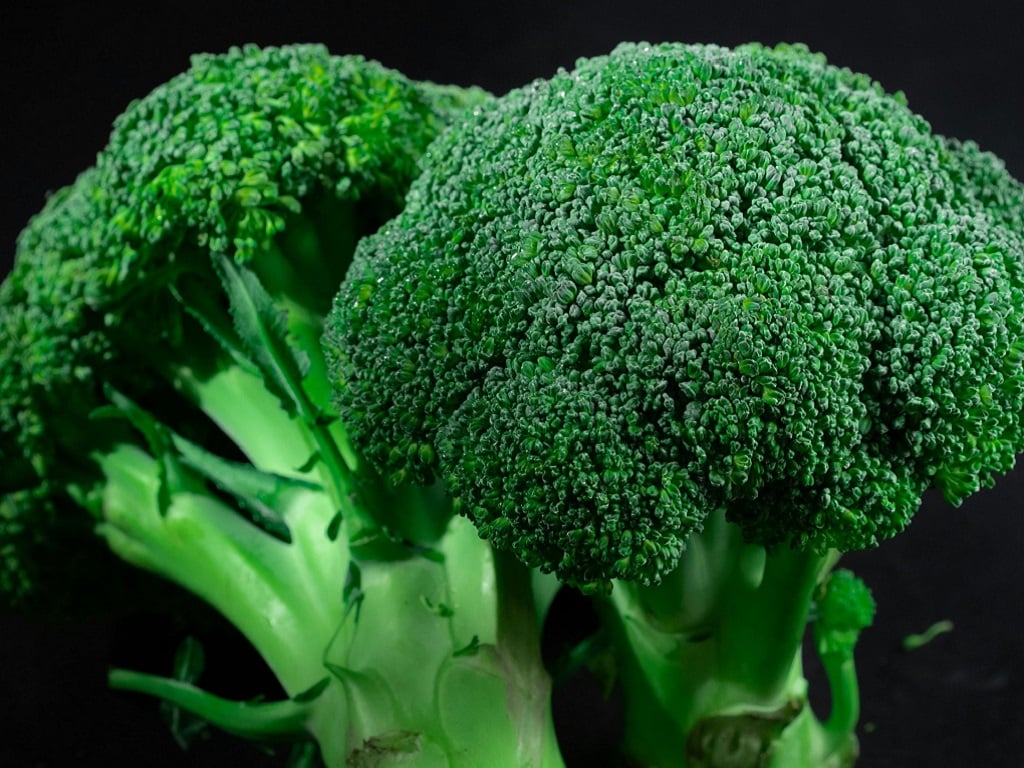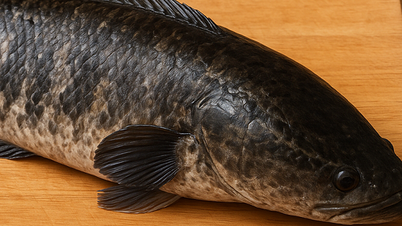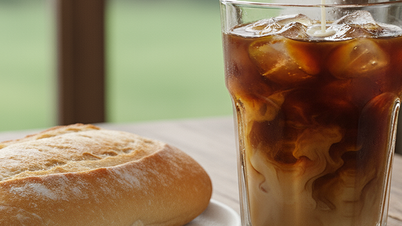How to eat fiber to reduce high cholesterol?
Without enough fiber, the body can easily become constipated and lose its balance of intestinal bacteria.
Meanwhile, eating enough fiber can help reduce the risk of heart disease, type 2 diabetes, and some cancers. Eating the right type of fiber can even help prevent the intestines from absorbing cholesterol, thereby controlling blood cholesterol levels.
There are two main types of fiber: insoluble fiber and soluble fiber.
Insoluble fiber is a type of fiber that helps prevent constipation, absorbs harmful substances in the digestive tract and then expels them through the stool.
Meanwhile, soluble fiber absorbs water in the digestive tract and forms a gel-like substance. They have the ability to slow down the digestive process, thereby helping to control blood sugar and cholesterol levels in the blood, according to the health website Healthline (USA).

Broccoli is rich in fiber, which helps control blood cholesterol.
A study published in the journal Advances in Nutrition analyzed data collected from more than 14,000 people. The results showed that soluble fiber supplements can improve blood cholesterol levels. Every 5 grams of soluble fiber consumed per day can reduce total cholesterol by 6 mg/dL. Healthy people will have blood cholesterol levels that do not exceed 200 mg/dL.
The study also found that the cholesterol-lowering effects of soluble fiber were more pronounced in people with type 2 diabetes and metabolic syndrome. The study authors recommend that people consume at least 15 grams of soluble fiber per day to reduce cholesterol.
New day with health news, we invite you to continue reading the article How to eat fiber to reduce high cholesterol? on Thanh Nien Online health news on the new day of March 24. You can also read other articles about fiber such as: Nutritionist: These are the 4 best fruits for health; In addition to fiber, broccoli also contains extremely good nutrients...
Is it better to drink warm water or cold water?
When it's hot, many people like to drink cold water to quench their thirst. But doctors advise against drinking cold water no matter how much you like it.
In fact, they recommend the opposite: drinking warm water, according to health news site PharmEasy .
You can see people who are very conscious about their health choose warm water over cold water. They do this because warm water has numerous health benefits.
Benefits of drinking warm water

When it's hot, many people like to drink cold water to quench their thirst.
Drinking water has countless benefits, from boosting overall health to fighting certain diseases. But warming it up a bit can multiply the benefits.
Drinking warm water regularly speeds up digestion by quickly breaking down food particles and aiding in better nutrient absorption. It is also a tool to prevent constipation.
When you drink warm water, your body will heat up. From there, your metabolism will also speed up.
Warm water causes profuse sweating, which helps the body eliminate toxins.
Warm water dilates blood vessels. This promotes better blood circulation, increasing the amount of oxygen throughout the body, helping organs function better.
New day with health news, please continue reading the article Is it better to drink warm water or cold water? on Thanh Nien Online health news on the new day of March 24. You can also read other articles about drinks such as: What kind of patients should not drink orange juice?; What do doctors say about 'should you drink leaf juice to dissolve kidney stones'?...
What should men do to avoid prostate enlargement?
The male prostate gland is located below the bladder and in front of the rectum. It is the gland that produces semen. As men age, declining testosterone levels and changes in testicular cells can cause the prostate to enlarge, leading to BPH.
Prostate enlargement is also known as benign prostatic hyperplasia. This condition is not cancer. However, the disease will become a worrying health problem if the symptoms begin to affect the quality of life, according to the health website Medical News Today (UK).

Symptoms of prostate enlargement can appear in middle age and become more severe as men age.
Symptoms may begin to appear in middle age and then gradually become more severe. Common symptoms of prostate enlargement include frequent urination, frequent urination at night, difficulty urinating, a weak or dribbling urine stream, and a feeling that the bladder cannot be completely emptied.
Medication and surgery can effectively treat prostate enlargement. However, prevention is better than cure. One important thing men can do to reduce their risk of prostate enlargement is to avoid metabolic syndrome.
New day with health news, we invite you to continue reading the article What should men do to avoid prostate enlargement? on Thanh Nien Online health news on the new day of March 24. You can also read other articles about men such as: Discovering a way to help men reduce the risk of prostate cancer by 35%; 7 types of cancer that are likely to occur in men from the age of 40, how to prevent...
In addition, on Sunday, March 24, there are many other health news articles such as: ...
New day with health news wish you a happy and happy Sunday.
Source link



![[Photo] Closing ceremony of the 18th Congress of Hanoi Party Committee](https://vphoto.vietnam.vn/thumb/1200x675/vietnam/resource/IMAGE/2025/10/17/1760704850107_ndo_br_1-jpg.webp)




























![[Photo] Nhan Dan Newspaper launches “Fatherland in the Heart: The Concert Film”](https://vphoto.vietnam.vn/thumb/1200x675/vietnam/resource/IMAGE/2025/10/16/1760622132545_thiet-ke-chua-co-ten-36-png.webp)













































































Comment (0)